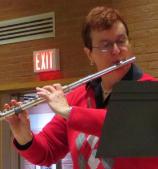Vote in Our Poll
How many print books and e-books did you read in 2025? How many audiobooks did you listen to?
Word of Mouth
Tell us about the books you’ve finished reading with your comments and a rating of 1 to 5 stars. During the contest period from December 19th to January 9th at noon ET, three lucky readers each will be randomly chosen to win a copy of THE FIRST TIME I SAW HIM by Laura Dave and SKYLARK by Paula McLain.
A Note from Carol
Our major goal for 2026 is to redesign Bookreporter and the rest of the sites in The Book Report Network. How can you help? We have launched a GoFundMe campaign and are asking for donations. Any level of donation that you would be comfortable with is sincerely appreciated. If you would prefer donating via check, please send to:
The Book Report, Inc.
16 Mt. Bethel Road, Suite 365
Warren, NJ 07059
Click here to read more about our plans and to donate.
Coming Soon
Curious about what books will be released in the months ahead so you can pre-order or reserve them? Then click on the months below.
Bookreporter.com Bets On
New in Paperback
The following are lists of new paperback releases that we think will be of interest to you.
Books On Screen
Reading Group Guides
Best Offer Wins by Marisa Kashino
Canticle by Janet Rich Edwards
Cursed Daughters by Oyinkan Braithwaite
The Eye of God by Aeternus Costin
The Heir Apparent by Rebecca Armitage
The Land in Winter by Andrew Miller
Last Call at the Savoy by Brisa Carleton
Like Family by Erin O. White
Mona's Eyes written by Thomas Schlesser, translated by Hildegarde Serle
The Perfect Hosts by Heather Gudenkauf
Queen Esther by John Irving
Some Bright Nowhere by Ann Packer
Canticle by Janet Rich Edwards
Cursed Daughters by Oyinkan Braithwaite
The Eye of God by Aeternus Costin
The Heir Apparent by Rebecca Armitage
The Land in Winter by Andrew Miller
Last Call at the Savoy by Brisa Carleton
Like Family by Erin O. White
Mona's Eyes written by Thomas Schlesser, translated by Hildegarde Serle
The Perfect Hosts by Heather Gudenkauf
Queen Esther by John Irving
Some Bright Nowhere by Ann Packer
Copyright © 2026 The Book Report, Inc. All Rights Reserved.













